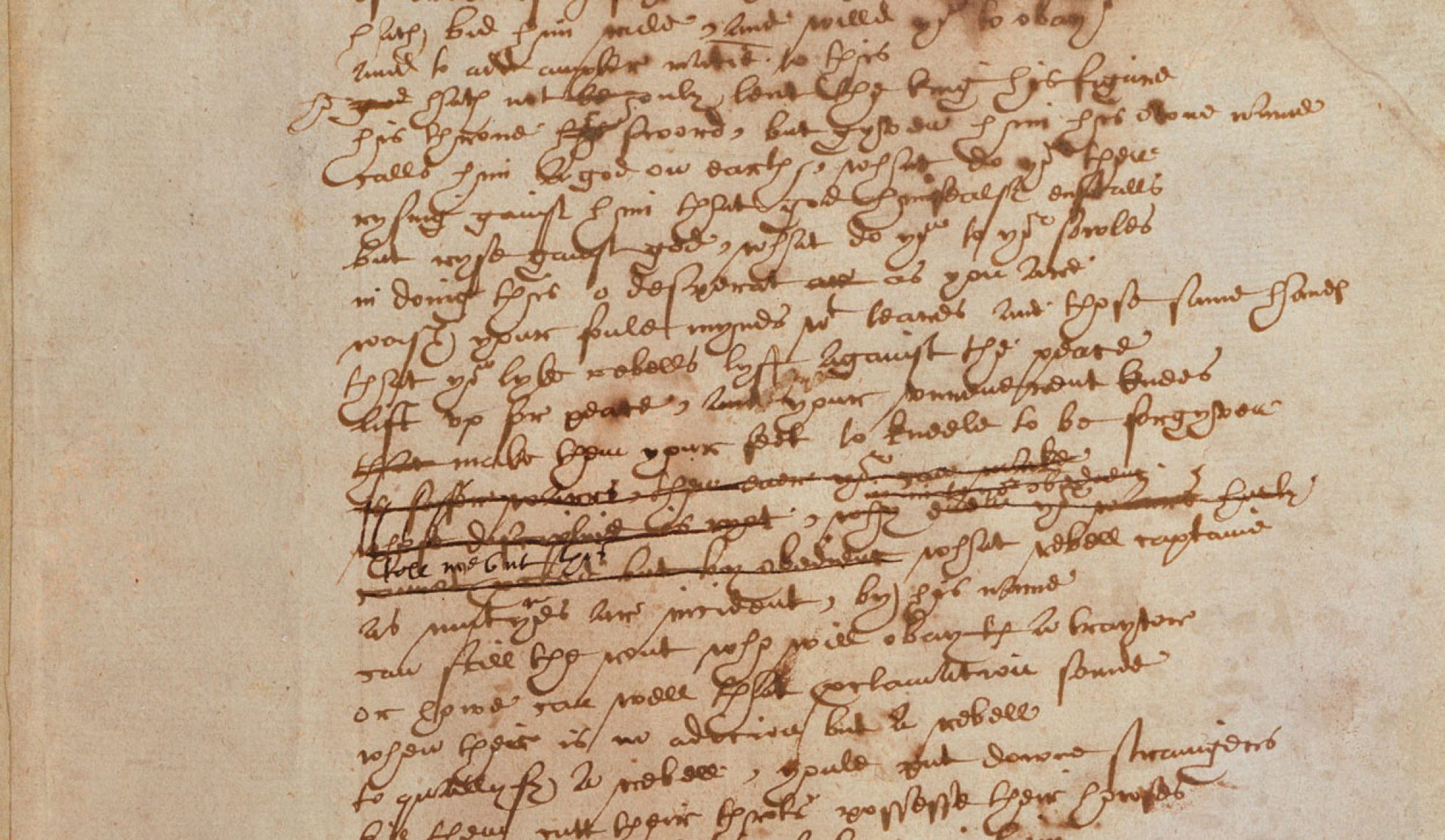2.2.1.10ff
Falstaff:
I am accursed to rob in that thief’s company. The rascal hath removed my horse, and tied him I know not where. If I travel but four foot by the square further afoot, I shall break my wind. Well, I doubt not but to die a fair death for all this, if I scape hanging for killing that rogue. I have forsworn his company hourly any time this two-and-twenty years, and yet I am bewitched with the rogue’s company. If the rascal have not given me medicines to make me love him, I’ll be hanged. It could not be else – I have drunk medicines. Poins! Hal! A plague upon you both! Bardolph! Peto! I’ll starve ere I’ll rob a foot further. An ’twere not as good a deed as drink to turn true man and leave these rogues, I am the veriest varlet that ever chewed with a tooth. Eight yards uneven ground is threescore-and-ten miles afoot with me, and the stony-hearted villains know it well enough. A plague upon it when thieves cannot be true one to another. Whew! A plague upon you all! Give me my horse, you rogues, give me my horse, and be hanged!
[…]
Falstaff:
Hang thyself in thine own heir-apparent garters! If I be ta’en, I’ll peach for this. An I have not ballads made on you all and sung to filthy tunes, let a cup of sack be my poison. When a jest is so forward, and afoot too! I hate it.
Comment:
I noticed in reading this play that Falstaff has a particular fondness for the conditional. I’m especially interest in cases in which Falstaff’s conditionals take the form of an oath, with the protasis (“if clause”) setting forth something obviously true or untrue, and the apodosis (“then” clause) setting forth a clearly undesirable or drastic consequence which will not be realized. The drastic nature of the apodosis serves, in fact, to highlight Falstaff’s certainty in the protasis. The modern equivalent might be “if… then I’ll eat my hat.” In this construction Falstaff seems to incline more toward asserting that something isn’t true than that it is. Of course, not all of his conditional sentences function this way – in some cases, they express a real sense of uncertainty about the future or a counterfactual discussion of what would be the case but isn’t. What I’m talking about here could be called an ironic usage, which grammatically discusses something in uncertain terms but which serves in practice to assert certainty. I’ve bolded some examples in my passage above. This type of construction might receive and entry in a constructicon.
It might be worth discussing how this construction relates to other forms of strong statement that Falstaff employs, such as when a temporal clause depends on a main clause expressing an undesired or unattainable result: “I’ll stave e’re I’ll rob a foot further,” i.e. “I won’t rob any more.” This seems to be related to constructions like the modern “when pigs fly” i.e. “never,” or “that’ll be the day.” Whether expressed through an unlikely temporal sequence, or an unlikely causal (i.e. conditional) sequence, these types of oaths, if I may lump them under that heading, seem to be a common feature of colloquial speech, or at least the literary representation thereof, across cultures and times. I think Falstaff provides an interesting case study for why that is and how they might be understood to function.
Is this a substantial observation about Falstaff’s character? Does this hold true in other scenes in which he is less upset? Really, all that I’ve pointed out is that Falstaff is quite prone to swearing, and that he uses particular formulas of swearing. The verbal mood of swearing is, in any case, essentially subjunctive or imperative, not indicative – it discusses what might or should be, not what is. Is this simply part of the demotic and comedic coloring of Falstaff’s speech, or does this texture of unreality tell us something more fundamental about his character?
